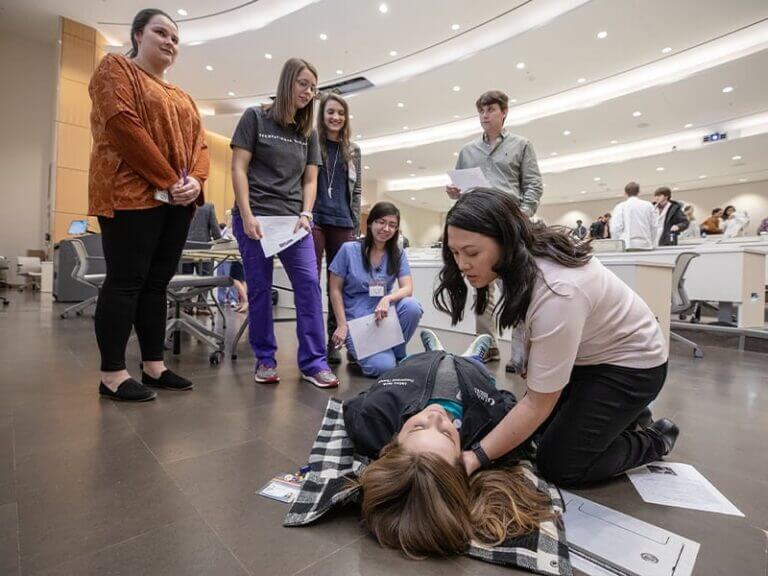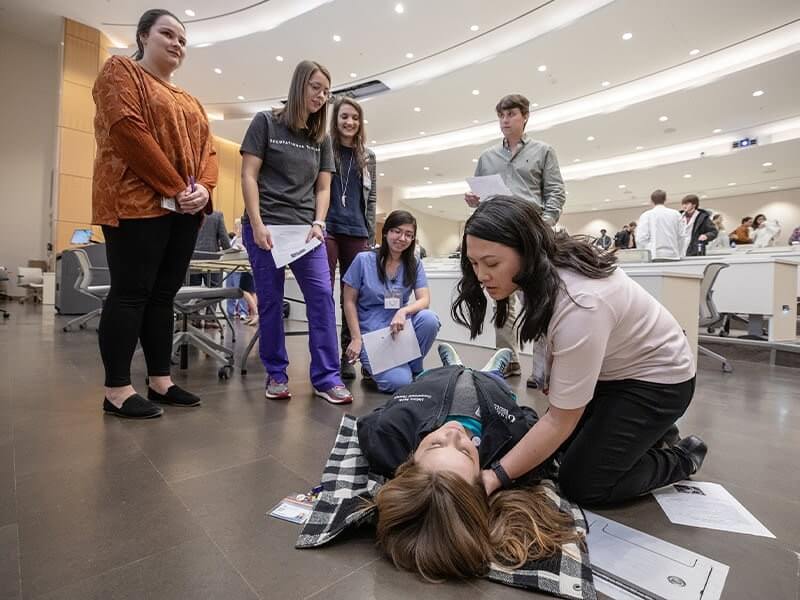

Mississippians struggling with addiction have one less option for treatment after Congress cut funding for a University of Mississippi Medical Center project, according to a spokesperson for the medical center.
The Mississippi Horizons Project used telehealth to treat patients with gold-standard medicine for opioid addiction like buprenorphine, according to a website that UMMC has since taken down. Started in 2022 when Republican Sen. Cindy Hyde-Smith sent $6 million of congressionally directed spending to the medical center, the program focused on connecting uninsured Mississippians to the medications.
The program also offered addiction psychotherapy, financial assistance for prescriptions and in-patient treatment, medical transportation and peer support services, according to an appointment request form linked to the project website.
“That’s where we should be headed,” said Greg Spore, a member of the Mississippi Opioid Settlement Fund Advisory Council and a lawyer with the Office of State Public Defender. “That’s our aim. Those are interventions that are working and will continue to work.”
Spore struggled with addiction for years before entering long-term recovery. He credits medication assisted treatment as an important reason he’s stayed sober. But for many Mississippians, treatments like buprenorphine are out of reach.
“There’s no reason why we shouldn’t be flushed with such treatment across the state,” he said.
The Horizons program ended quietly in July, with no known public announcement from the medical center. After researchers with Mississippi Horizons published a study in September about their work, Mississippi Today reached out to UMMC to speak with someone from the program about their approach to ending an overdose crisis that has killed over 10,000 Mississippians since 2000.
Each year since 2022, Mississippi has been paid tens of millions of opioid settlement dollars, money that is supposed to help respond to the overdose public health crisis. But 15% of those dollars — the money controlled by the state’s towns, cities and counties — is unrestricted and being spent with almost no public knowledge. Mississippi Today spent the summer finding out how almost every local government receiving money has been managing the money over the past three years.
Read The Series
Only then did a spokesperson with the medical center say in an email that the program had shut down after losing federal funding. She did not answer whether the cuts were a result of the July congressional spending bill, how much longer the grant was expected to provide funds, what role Mississippi Horizons played in addressing the crisis or whether other UMMC substance use disorder efforts were impacted by the cuts.
A federal government website that monitors how its grants are spent indicates that UMMC did not spend roughly $2.3 million of the $6 million Congress initially awarded the medical center.
Mississippi Today emailed officials with the Substance Abuse and Mental Health Services Administration, the federal agency managing the Mississippi Horizons grant, to ask why the funding was canceled and what other strategies the agency would use to address the addiction crisis after this cut. The newsroom received an automatic email response that said some operations were paused because of the government shutdown.
Top officials with the Trump administration and the Department of Health and Human Services spoke of the importance of financially empowering states to prevent more deadly overdoses in a September press release announcing continued funding for state addiction efforts. SAMHSA spokespeople did not respond to an emailed question about whether this grant aligned with this stated mission.
A spokesperson for Hyde-Smith did not respond to an email asking for the senator from Brookhaven’s thoughts on the cut. A federal appropriations website shows she requested over $4.5 million for UMMC for substance use disorder prevention work for fiscal year 2026, but neither body of Congress has passed that funding bill yet.
Tricia Christensen, an independent overdose prevention and drug policy consultant, said telehealth services that pair people to medicine effective at treating opioid addiction are essential, especially in rural areas. In these regions, she said many drug deaths can be prevented with better access to resources that make up for limited transportation options.
“From a bird’s eye view, it sounds like a huge loss,” she said.
Mississippi Horizons’ September research paper highlights that in addition to its clinical work, the project also identified challenges that prevented Mississippians from being treated for addiction. The researchers found that because of misinterpretations of state and federal laws, biases against new patients and credit card payment problems, many Mississippi pharmacies were reluctant to work with UMMC to prescribe medications.
Christensen said by identifying these particular problems, researchers and advocates can develop plans to overcome them.
“Is it just an education issue that they don’t understand the law? In which case, we can maybe do some education with them,” she said. “Or is it more of a stigma-related issue, where more work needs to be done to change that narrative?”
The Horizons shutdown is another instance of money intended to prevent Mississippi overdoses not being spent for that purpose. In September, a Mississippi Today investigation found that of the over $124 million the state had received in lawsuit settlement money from companies that contributed to a decades-long addiction crisis, less than $1 million had been used on strategies to address the epidemic.
Some local officials have since directed opioid settlement money to prevent more drug deaths, and the Legislature is expected to start spending tens of millions of settlement dollars on new strategies this summer. The council Spore serves on advises state lawmakers on how they should spend those funds, and it recently released preliminary assessments of which projects the Legislature should invest in.
UMMC applied for $10 million of state opioid settlement money to continue opioid addiction prevention, treatment and recovery work. The council ranked the project in the top tier of applications, although the subcommittee grading it recommended an award less than the medical center’s ask.
After spending months examining how Mississippi could improve its response to the opioid public health catastrophe, Spore said he hoped the Legislature would use settlement dollars in part to create more programs like Horizons. Now, instead of expanding and supporting programs like it, he said he and others responsible for addressing the state’s overdose crisis will have to find ways to make up for its elimination.
“Losing that is terrible. It’s a blow to the state.”
- Scientists: Genetic analysis could speed restoration of American chestnut trees, from Maine to Mississippi - February 14, 2026
- NAACP threatens to sue Elon Musk’s xAI over pollution in Mississippi - February 13, 2026
- School consolidation bill dies without a vote in Mississippi Senate - February 13, 2026